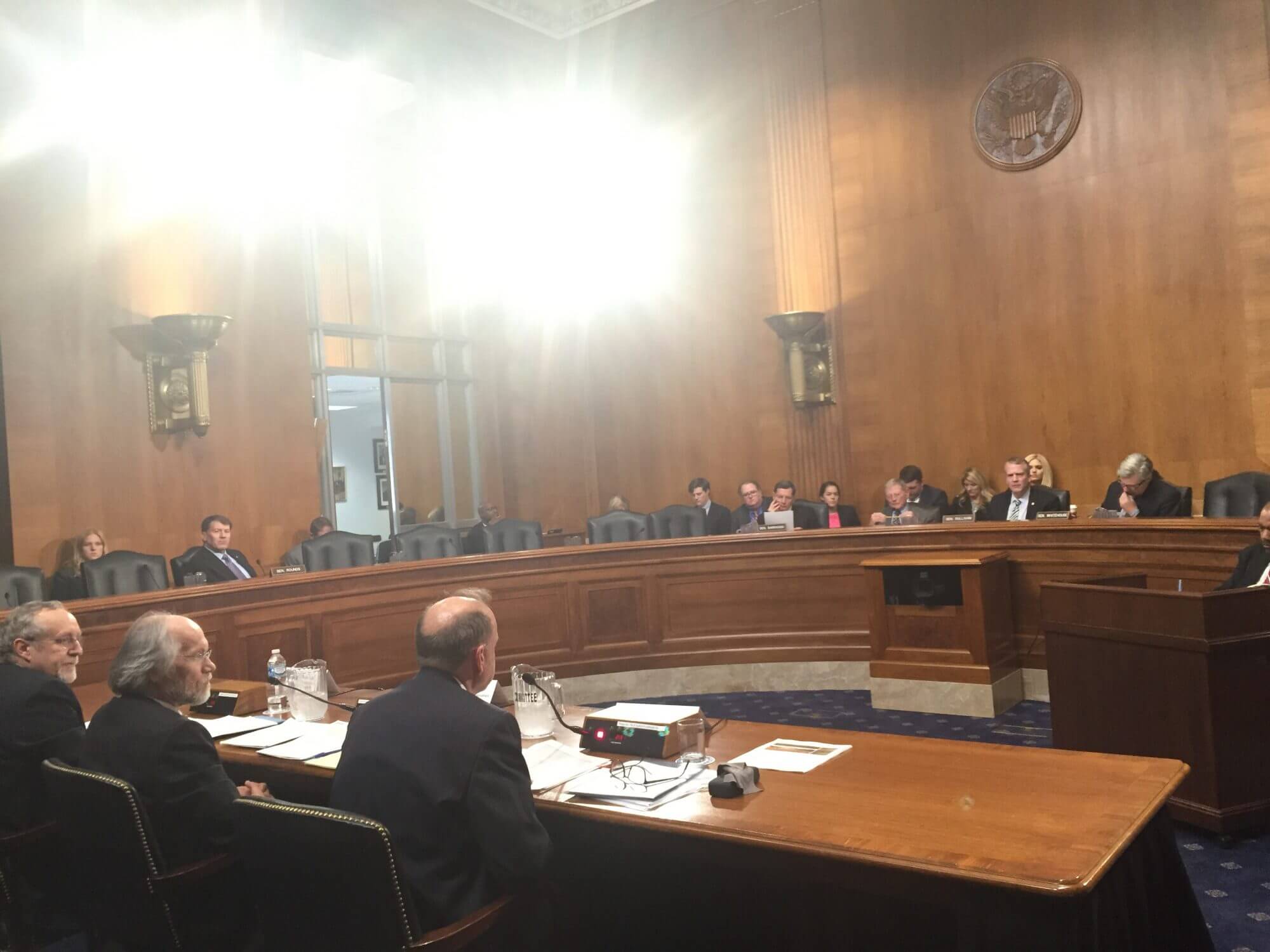WASHINGTON– A proposal in Congress that would set aside some federal lands for hunting, fishing and shooting pits the notion of giving states more autonomy over their fish and wildlife populations against animal and habitat conservation, and the head of a key Senate subcommittee said Tuesday it’s time for states to regain primacy over wildlife management.
Sen. Dan Sullivan, R-Alaska, proposed an amendment to the Bipartisan Sportsmen’s Act of 2015 because he wants to stop the U.S. Fish and Wildlife Service from enacting hunting restrictions in Alaska.
Sullivan, who is chairman of the Subcommittee on Fisheries, Water and Wildlife, said during a subcommittee hearing that the proposed Alaska restrictions are part of a bigger debate to limit the amount of power federal agencies have in regulating all state management of fish and wildlife.
“For a long time, states have had the primacy over management of wildlife within their borders,” he said.
In Alaska’s case, the Fish and Wildlife Service is proposing a ban against predator hunting practices, which are used by state wildlife managers to maintain populations of deer, caribou and moose.
The top Democrat on the subcommittee, Rhode Island Sen. Sheldon Whitehouse, said he does not believe there is widespread contention between federal and state agencies.
“Many states manage to get along very well with the federal agencies,” Whitehouse said. “Successful cooperation between state and federal agencies is actually the norm. Serious conflict is an anomaly.”
The Alaska provision is part of the larger measure that measure would require certain areas of federal land be set aside to facilitate hunting, fishing and recreational shooting.
A letter submitted to Senate from various environmental organizations including Defenders of Wildlife, the Sierra Club, the National Resources Defense Council and the Environmental Defense Fund, said the bill “contains anti-environmental provisions that threaten our lands, waters, wildlife and the health of our communities.”
But most of Tuesday’s hearing focused on the proposed ban in Alaska,
Doug Vincent-Lang, former director of the Alaska Division of Wildlife Conservation, said hunters who need the animals for food would be hurt by the proposed ban because it would cause a drop in the number of animals.
“They’re going to starve,” said Vincent-Lang, who testified on behalf of Safari Club International, a pro-hunter organization. “They have to be able to eat and that’s the food they have by living off the land.”
Donald Barry, senior vice president for conservation programs with Defenders of Wildlife told the committee that he “strongly opposes” the amendment allowing states to implement their own conservation methods.
Whitehouse noted that the U.S. Fish and Wildlife Service – the agency under review— was not invited to speak at the hearing.
“In a discussion about the U.S. Fish and Wildlife Services’ rules and regulations and how they’re affecting state agencies, the service should be here to explain and if necessary, defend their actions,” he said.

